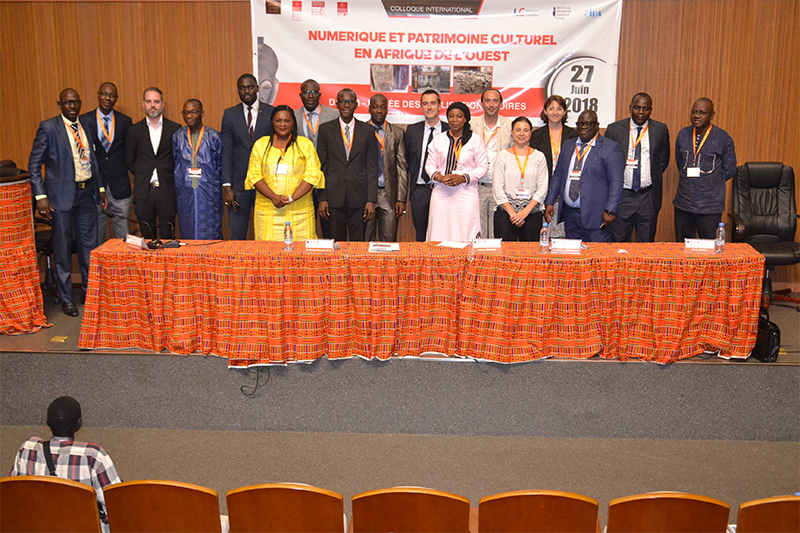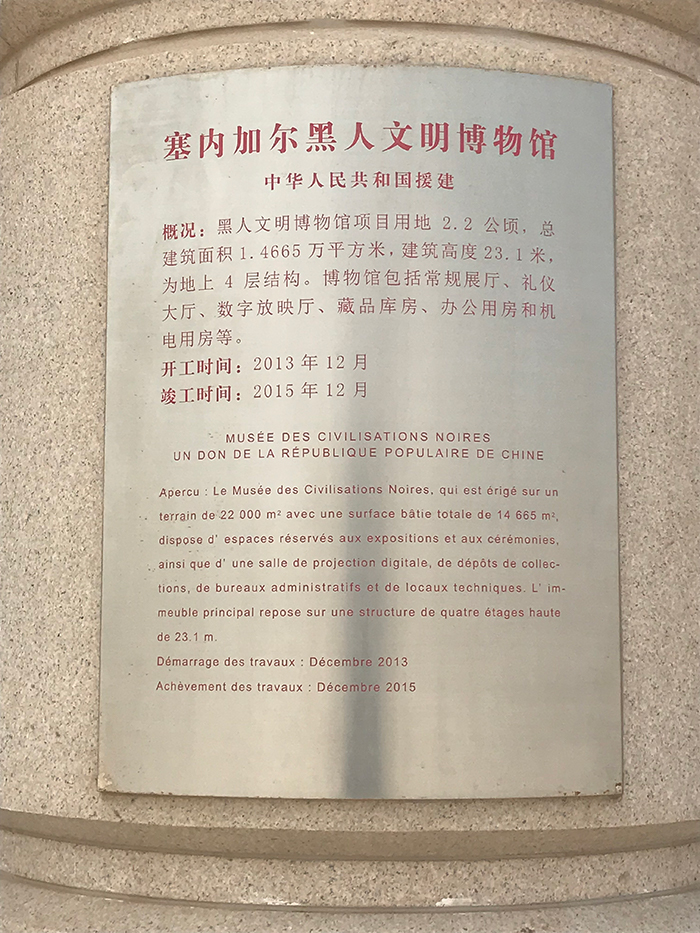Dakar Symposium on Digitisation and Cultural Heritage in West Africa - Susana Molins Lliteras
At the end of June, I participated in an international symposium on Digitisation and Cultural Heritage in West Africa. It was jointly organised by the French Institute Champollion of the University of Toulouse Capitole and the l'Institut Supérieur de Management of Dakar (Including the Madiba Leadership Institute, of course!), a relatively new, private university in Senegal.
It is notable that a public French institution choose to partner—this was only one among many other partnerships, including exchange students and joint degrees—with a private educational institution in Africa instead of with the well-established state University Cheick Anta Diop (UCAD) for example, possibly speaking to the increasing privatisation and compartmentalisation of higher education in West Africa and the strong-arm tactics emanating from institutions in the global north.
The public symposium, attended by students, professionals and civil society was held at the recently built, grandiose Museum of Black Civilisations, a state-of-the-art facility funded and constructed by China, but which, however holds no collection whatsoever; it stands as an empty shell since its completion in December 2015. The director of the Museum, one of the presenters at the symposium, outlined their future plans, which although technologically innovative were still collection-less … This left me wondering about the unsettling implications of the enduring image of an empty museum of black civilisations in Africa.
The opening address of the symposium was delivered by the Senegalese Minister of Culture, Abdou Latif Coulibaly, demonstrating the current interest in and potency of the topic. The morning session approached the subject from the point of view of intellectual property in the ambit of the law. The take-away points here were the tensions in the drafting of international law dealing with cultural heritage: between countries from the global north, opposing legislation entrenching the intellectual property rights of countries from the global south over objects and materials despoiled during colonialism and kept in their museums; and those from the global south, wanting to expedite this legislation and to draft another to address questions of the repatriation of such material. The issue of repatriation reverberated with the audience, who raised critical questions about the enduring legacies of violence and dispossession that museums with such material represent.
The first afternoon session revolved around specific questions of digitisation in West African museums, with the directors of some of the main museums represented—from Burkina Faso, Senegal, Ivory Coast, the Association of West African Museums, and the African ethnographic museum in Paris, Musée du quai Branly – Jacques Chirac. The salient issues raised were the irrelevance of the 'standard' ethnographic museum in Africa today, and the lack of funding for digitisation projects, which in the West African case still rely solely on the state. This was in stark contrast to the case of the ethnographic museum of Paris, which in an effort to remain relevant and evolve, has invested heavily in state-of-the art technology, however through partnerships with private corporations such as Google. This raised poignant questions of the intellectual property rights of its materials. The disparities between the museums in Africa and the one in Europe highlighted once again the contestations in power relations manifested through the medium of cultural heritage.
The final session approached the 'digital revolution' in West Africa from the point of view of books, libraries and archives; with presentations from the director of the school of librarians and archivists (UCAD), representatives of the Association of Intellectual Property and Authors' Rights, and me, in my capacity as researcher with the Tombouctou Manuscripts Project. Questions about the effects of digitisation on reading practices, the role of libraries as safe spaces, and thinking of digitisation as the 'fixing' of an object were highlighted. My presentation on the experience and constraints of the digitisation of the manuscripts of Timbuktu provided an illustrative example of some of the more theoretical issues discussed throughout the day. Input from the public reflected ethical concerns with the desirability of digitising certain materials and debate on if and how digitisation provides 'more' access to materials.
To me, the symposium as a whole underscored the gaps between policy makers, in law for example, that deal with questions of digitisation from the point of view of intellectual property, and practitioners, in museums, archives and libraries, who design projects with limited funding. Moreover, a central thread which resonated throughout the day was the necessity to reflect on digitisation from the experience and lived realities in African contexts, instead of just importing global north-based concerns.

